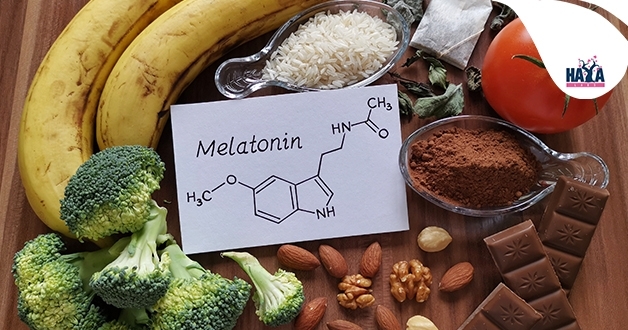
Melatonin
0
4558
Melatonin is a hormone that is strongly influenced by "dark" and "light" therapies and can be used as a means to improve sleep. It is preferable to some medication because it does not lead to addiction.
In melatonin articles, it must be acknowledged that the body needs the right rhythm of sleep. Some of the long-term benefits of melatonin may be due to normalizing sleep and resulting from this fact, not direct melatonin induction.
What is melatonin?
Melatonin (5-methoxy-N-acetyltryptamine) is a peptide hormone and a non-transmitter present in the organisms of all living beings (from algae to man) at levels that change in a daily cycle. In higher animals, it is produced by pinealocytes (cell types) in the pineal gland (located in the brain) as well as by the retina and the gastrointestinal tract. It is synthesized by the amino acid tryptophan by a synthesis of serotonin by the enzyme 5-hydroxy indole-O-methyltransferase.
Melatonin is produced in the pineal gland (a small gland in the brain) under the serotonin conductor (one of the most important neurotransmitters). Like a vampire, melatonin appears in the blood only at night and disappears in the day.
At twilight, the pineal gland gradually begins to increase melatonin secretion, which reaches its maximum in full darkness.
In the morning, the light activates the optic nerve, as the generated impulse passes through the spine and the upper conduction paths to reach the pineal gland that blocks the synthesis and secretion of melatonin. In practice, a metronome that regulates the activity of the central nervous system works. By receiving continuous pulses through the optic nerve, the pineal gland is likely to be able to regulate the activity of different organs and systems and to stimulate a switch to a "sleep mode" when it is dark, thus greatly reducing the body's energy costs. A key element of this regulatory mechanism is also melatonin.
Melatonin is found naturally in several plants insufficiently bioactive doses. Among the best sources of melatonin are tomatoes, walnuts, barley, rye, strawberries, olive oil, raw cow's milk, wine, beer, and cherries.
How does melatonin work?
It has been found that the synthesis of melatonin in the human body plays an extremely important role in the control of the 24-hour rhythm of alertness and the associated changes in the secretion of various hormones (cortisol, testosterone, growth hormone) associated with these conditions.
Melatonin is a fundamental regulator of the cyclical rhythms of the human body. It shows a 24-hour synthesis and releases pattern. Its natural bioavailability over an extended time (5-6 hours) during the night also determines the effect on the cyclic system of biological rhythms.
As has already been said, melatonin regulates the breeze-sleep cycle and synchronizes the biorhythms.
This precise rhythm, individual to each person, can come out of the rails if there is a melatonin secretion disorder. When insufficient quantity, melatonin slightly decreases human body temperature - thereby reducing energy consumption and speeding up the regeneration of cells that are not active during the sleep phase. It is believed that melatonin is also one of the most powerful antioxidants known to date that act both at the cell membrane level and inside the cell itself. In the course of evolution, one has lost his ability to produce some powerful antioxidants such as beta-carotene and vitamin C in his body but has retained other antioxidants (such as melatonin) that deactivate free radicals (a major threat to the body) and thus form a powerful defense system against them.
For example, the brain made up of 50% fat, 1/3 of which is unsaturated fatty acids, is very sensitive to free radicals. The pineal gland, which is at the base of the brain, synthesizes melatonin, which is the "last ruble" against free radicals attacking the brain. Melatonin also lowers the level of "bad" LDL-cholesterol, protects against some cancers and stimulates the immune system.
Serum levels and metabolism
In studies on several models associated with insomnia or difficulty falling asleep, it has been found that small doses of 0.3 or 0.5 mg are effective as ten-fold higher doses. It was also found that a "super" dose of 20 mg was less effective than the conventional dosage. Establishing serum melatonin peaks was extremely difficult, varying in each study. There is little difference in the different dosages, but in all cases, serum melatonin concentrations are increased several times compared to any physiological concentration. Doses of 3 to 5 mg increase concentration and slow down half-life.
The half-life of melatonin is only 24 minutes, and its blood levels remain stable until 150 minutes after dosing. The half-life does not differ in small and large doses.
read more
Melatonin is metabolized and expelled quickly from the body. Its metabolism accelerates from flavoring, and some habits, such as smoking, intensify its elimination from the body.
Melatonin and age
The levels of melatonin in peripheral blood are different in young and adult individuals. It has been shown that with age the circadian systems in the human organism "spoil". As with most hormones, when aging, the melatonin level drops dramatically - for example, for an 80-year-old man, its serum values are only 10% of the 20-year-olds.
A consequence of this is a significant change in several vital parameters. Particularly, it affects negatively the cycle of sleep - cheerfulness, at night the temperature of the adults does not fall, which means that reconstructive processes of the tissues and organs can not take place.
Proven and potential human benefits
- Sleep and reassurance
The main mechanism of action is associated with a reduction in sleep time, with melatonin also benefiting in healthy individuals. In some studies, melatonin is reported to even improve sleep quality, but this is not proven in healthy individuals. However, the same does not apply to elderly people and children suffering from insomnia, where melatonin also has a positive effect on the quality of sleep. This also applies to people who suffer from migraine or subjective ringing in the absence of an external source as well as in schizophrenic patients.
- Stomach problems
- Nervous system
- Cardiovascular system
- Peripheral organs (eyes and ears)
Melatonin has a positive effect on blood pressure in the eyes through the melatonin receptor. This effect is also associated with a decrease in adrenaline. There was a significant decrease to two hours after oral administration.
The benefits of melatonin for the eyes do not end there. Melatonin levels in glaucoma are significantly lower in the evening, with melatonin in the case helping to improve the condition or at least halting its deterioration.
With what to combine melatonin?
To improve sleep, melatonin can be used with other similar supplements such as GABA, 5-HTP, L-Theanine, ZMA and L-Tryptophan.
Melatonin binds to enzymes that inhibit the transformation of L-tryptophan into 5-HTP, so their combination is recommended.




